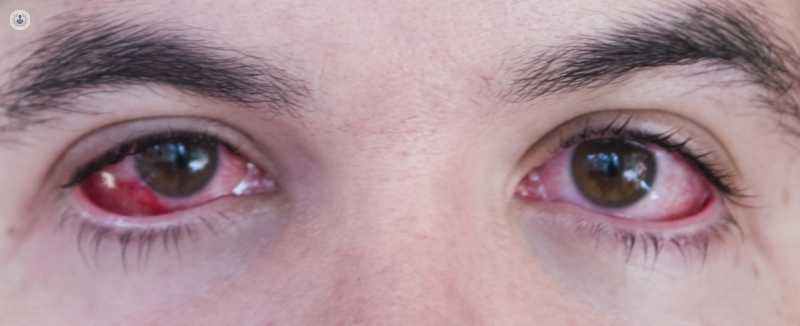
Allergic conjunctivitis is an inflammatory condition that affects the conjunctiva, the thin transparent membrane covering the inner surface of the eyelids and the whites of the eyes. It is one of the most common eye conditions caused by an allergic reaction and often manifests as a seasonal occurrence in spring and summer when the amount of allergens in the air increases.
Causes:
- Allergens: Pollen, dust, pet dander, feathers, animal fur, mold, etc.
- Irritants: Smoke, chemical fumes, air pollutants.
- Contact lenses: Some individuals may experience an allergic reaction to components of contact lenses.
Symptoms:
- Itching and irritation: Sensation of itching and discomfort in the eyes.
- Redness: The conjunctiva becomes red and irritated.
- Tearing: Increased tearing.
- Feeling of grittiness: Sensations of foreign body in the eyes.
- Photophobia: Heightened sensitivity to light.
Diagnosis:
The doctor conducts an eye examination and takes into account clinical symptoms. Sometimes additional testing, including allergy tests and assessment of tear fluid, may be necessary.
Treatment:
- Avoidance of allergens: Attempt to minimize contact with known allergens.
- Antihistamine eye drops and medications: Help reduce itching and inflammation.
- Local application of anti-inflammatory agents: Corticosteroid eye drops can help alleviate inflammation.
- Eye lubrication: Applying artificial tears can relieve discomfort.
Prognosis:
In most cases, allergic conjunctivitis does not pose a serious threat to vision and responds well to treatment. However, it is important to consult a doctor for an accurate diagnosis and treatment recommendations.
